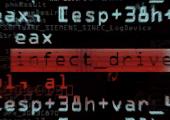John Lanchester: Reality, and Other Stories review - campfire spooks for the digital age

The hazy line between “reality” and whatever else is out there
What do you do when your phone rings, but you know the person ringing isn’t alive? In many ways, the cleverly named Reality, and Other Stories is a collection of ghost tales. But they are updated for the present day. John Lanchester meets his reader at the point at which the spectral intersects with the digital, all the while dissecting the seemingly simple notion of reality and its contents.









